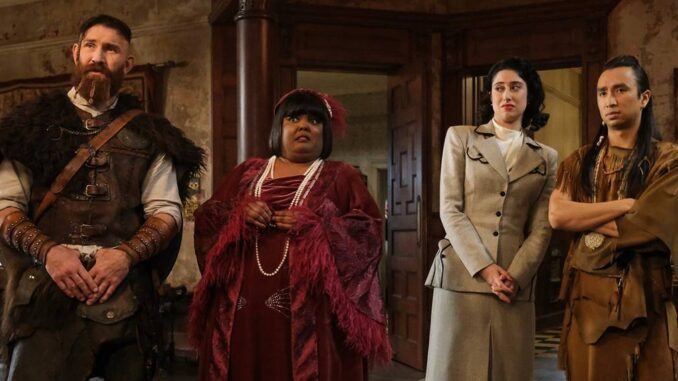
The grand, sprawling estates that house our beloved fictional ghosts are often as much a character as the spectral residents themselves. They are anchors, prisons, and sometimes, the very fabric of their characters’ continued existence. In the charming and critically acclaimed Ghosts (be it the original UK version or its equally adored US counterpart), the rules of the afterlife are clear: once a ghost, always a ghost, and usually, always tethered to the very spot they shuffled off their mortal coil. Yet, in both iterations, there’s often one spectral outlier, a character whose unique ability to defy these established ethereal laws sparks endless fan theories and deep narrative intrigue. The tantalizing whisper, "Fans may finally find out why this beloved ‘Ghosts’ character can roam," ignites a singular fascination: what cosmic oversight, what unfinished business, what peculiar twist of fate allows one lost soul to escape the invisible chains that bind all others?
Let us consider the prime candidate for this distinctive ability, particularly in the UK series, where his anomalous freedom has been a consistent source of plot and perplexity: Julian Fawcett MP. Unlike the Captain, forever rooted to his beloved uniform and the memories of war, or Mary, bound by the archaic traditions of the Button House kitchen, Julian drifts beyond the ancient stone walls of the estate. He's the transparent ex-politician, still slick and self-serving even in death, who can appear in the local village, hover over Alison at the doctor's surgery, or even venture into the pub. This freedom isn't merely a quirky character trait; it’s a narrative linchpin, allowing for external plot developments and a constant, unspoken question mark hanging over his very existence.
The other ghosts are, by and large, relics of their time, stuck in a physical and temporal loop. Thomas, the Romantic poet, perennially pines by the window where his heartbreak occurred. Robin, the Neanderthal, remains fundamentally connected to the earth beneath the house. Fanny, the Edwardian matriarch, is perpetually falling from the upstairs window. Their death spots are their anchors, their limitations, and their defining characteristic. Julian, however, exists as an exception, a glitch in the spectral matrix. He died mid-scandal, mid-coitus, a heart attack striking him down during an illicit tryst. Could the sheer momentum of his life, his constant hustle and ambition, have carried him beyond the typical confines of death? Perhaps his spirit, refusing to be contained even by the grave, simply kept going.
This unique ability to roam is more than just a plot device; it speaks to deeper themes within the show. While other ghosts are trapped in their past, forever reliving or reacting to the circumstances of their demise, Julian carries a semblance of continued agency. His spirit, much like his political career, refused to be confined by inconvenient truths or physical boundaries. This makes him invaluable to Alison, serving as her eyes and ears beyond the immediate vicinity of Button House, but it also underscores a poignant loneliness. While he can escape the physical confines, he remains a ghost, unseen and unheard by most of the living, perpetually hovering on the fringes of a world he can no longer truly touch. His freedom is a bittersweet paradox: he can go anywhere, but can truly be nowhere.
So, what revelation could finally answer this enduring mystery? The theories are as varied as the ghosts themselves. Is it the unconventional nature of his death – a sudden, ignominious end that left his spirit in a state of unresolved kinetic energy? Was it something inherent in his personality – a stubborn, unyielding will that defied even the laws of the afterlife? Or perhaps, and most intriguingly, is it tied to a specific, perhaps forgotten, piece of his past, a loose end that prevents his soul from fully settling? The potential for the show to delve into this offers a rich vein of storytelling, one that could reveal not only more about Julian but about the very mechanics of their ghostly existence.
The eventual reveal of why Julian can roam would be a moment of profound satisfaction for dedicated fans. It would provide a crucial piece of the Ghosts universe's lore, perhaps even opening up new possibilities for other characters. Could it be a path to partial freedom for others, or a stark reminder of the unique tragedy of Julian's unmoored existence? Whatever the answer, it promises to be a moment charged with both humor and pathos, deepening our understanding of a character who, despite his many flaws, has become irrevocably beloved. For a show that so brilliantly blends the silly with the sublime, solving the mystery of Julian’s spectral wanderlust would be a testament to its enduring cleverness and its profound grasp of the human (and post-human) condition.